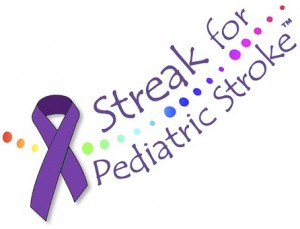 In elementary school we would have award ceremonies after the end of every quarter. Included in the report cards would be an invitation announcing that your child would be receiving an award and you were encouraged to attend. The Kindergarten and First Grade teachers were very generous and made sure that at some point during the year each child received an award. When Second Grade arrived additional awards started being handed out based on grades.
In elementary school we would have award ceremonies after the end of every quarter. Included in the report cards would be an invitation announcing that your child would be receiving an award and you were encouraged to attend. The Kindergarten and First Grade teachers were very generous and made sure that at some point during the year each child received an award. When Second Grade arrived additional awards started being handed out based on grades.I really didn't notice anything the first year and was the proud mom running up to take pictures when my daughter's name was called. Then it happened. In third grade she received an award entitled "Most Improved". What seemed like a move from synchronized swimming, a group of Moms turned towards me with their "Aw glad she's doing better but not as good as my child" smile. You know the one, where they're smiling but their heads crooked to the side. I truly didn't know how to react. Then as the program continued her name was called along with others for Honor Roll. This time I was given a thumbs up from a couple of the moms. A few of them even commented to my daughter how proud they were of her hard work. Here's the reality: The teacher had given her the "Most Improved" award for her neatness in cursive, and unlike what those Moms thought had nothing to do with grades.
Our children along with 800 others were sent to a brand new school the following year. With a new school comes new traditions and it seems some of the parents had a few they wanted to start. The first year was pretty mild however I noticed that instead of just a parent showing up for these awards entire families were now attending. Siblings were being pulled out of their classes to see their brother or sister receive their award. Now I am all for celebrating a child's achievement. In fact my kids know that great report cards equal a family night out. My husband has never taken off work to watch any of our kids receive a quarterly award. We were in the minority. It got to where there were cheering sections when a child's name was called. Now if you haven't been to one of these ceremonies very often multiple children receive the same award and the list of names are read off with each child walking to the stage. So while Johnny's family is woo-hooing his perfect attendance Sue's family can barely hear their child's name being called.
At the start of the second year it was announced that siblings could no longer be pulled from classes. The awards ceremonies were also switched from the end of the day to the middle of the morning which greatly reduced the number of attendees. It was also announced at the beginning of the ceremony that ALL APPLAUSE would be held until the end of each award. Of course it took a few stern looks from the principal to enforce this rule but it worked. I guess a couple families felt that this was not the right way to celebrate their students as the next ceremony would prove.
I thought I had missed a party or something when I arrived at the next award ceremony. There were a couple of moms sitting together who had balloons under their chairs. Was a teacher engaged? Was someone retiring? Being a pretty active volunteer at school I was usually on top of those things so I was truly perplexed. Imagine my surprise when these Moms walked to the stage and presented their child a balloon when they received an award! These were the kids who were always on Honor Roll, receiving perfect attendance and such. It wasn't as if they were being nominated for a Junior Version of the Nobel Peace Prize. Not only did it interrupt the ceremony but you know it made the other kids on stage at the same time feel bad. Of course my daughter was after one of these balloon kids. Due to the amount of time it took for the Mom to hand her daughter the balloon I was unable to get a picture of my child getting her award.
The craziness grew from there. From balloons it went to flowers for the girls, candy grams for the guys. Then one Mom finally pushed it too far. I don't know why she did it, all I can imagine is that the balloons, flowers and candy were no longer enough. When her daughter was called for her Honor Roll Award this Mom walked up to the stage and presented her child with a teddy bear. To be sure you have the right image think huge carnival size, the one guys win to impress their girls. The teacher presenting the award even stopped to comment on sweet that was. SWEET~ are you kidding me??? And yes once again my daughter's name was called after Bear Girl, the teacher truly barely acknowledged her she was so taken by this bear. That was the last Award Ceremony the principal allowed at that school.
Tomorrow night will be the last Award Ceremony for my son. It is Senior Award Night and just like in elementary they all want to hear their name called. I just hope that there won't be any balloons, flowers or bears
.









